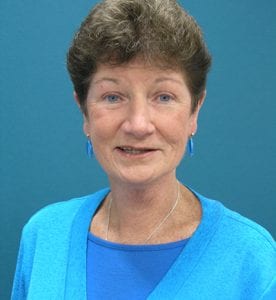Responding to the final communiqué of the COP25 climate talks in Madrid, Chema Vera, Interim Executive Director of Oxfam International, said:
“The world is screaming out for climate action but this summit had responded with a whisper. The poorest nations are in a sprint for survival yet many governments have barely moved from the starting blocks. Instead of committing to more ambitious cuts in emissions, countries have argued over technicalities.
“Poorer nations spoke with one voice to demand funds to help them recover from the loss and damage inflicted by the climate emergency. For the homes that have become uninhabitable, the land that has become un-farmable, and the lives that have become unbearable. Wealthy nations have used every trick in the book to stall progress and avoid paying their fair share.
“Now more than ever, it is vital that people across the world keep up the pressure on governments to deliver more ambitious climate action.”
Emissions Cuts
Instead of committing to more ambitious cuts in emissions, countries have argued over technicalities. Commitments made so far have come from countries that account for around only 10 percent of global emissions. They will not keep global temperatures from rising above 1.5°C. If we are to have any chance of avoiding catastrophic climate impacts it is critical that all countries – led by the largest emitters – commit to much deeper emissions cuts in early 2020.
Loss and Damage
COP25 did not establish a new funding mechanism for Loss and Damage. Instead countries agreed to start a conversation about funding and create a new expert group to advise on the issue. They also asked the Green Climate Fund – the main multilateral fund through which rich countries channel climate finance – to take up the matter.
Without new and additional funding, the world’s most vulnerable people will struggle to recover and rebuild after climate shocks. For example, Oxfam’s report, Forced from Home, shows that climate-related disasters are now the biggest driver of internal migration, forcing one person from their home every two seconds. It underlines the need for new and additional money to help communities that cannot adapt to the climate crisis.
Gender Justice
The Gender Action Plan approved at the summit sets out a plan for increasing the participation and leadership of women in international climate talks, and in the design and implementation of climate policies at the national and local level. While the plan still needs to be translated into concrete measures, actions and targets, it is encouraging to see this blueprint for change given that poor women are often the hardest hit by the climate crisis.
Climate Finance
Wealthy countries are not providing the funds that are needed to help poor nations adapt to the climate crisis. Rich polluting countries pledged almost $90 million in new funding for adaptation in Madrid and made additional pledges to the Green Climate Fund. However, Oxfam’s analysis shows that the target of reaching $100 billion per year in climate finance by 2020 remains a distant dream after adjusting for loans and creative accounting.
Reasons to be positive
As the big polluters dissemble and spin, the global movement for climate action is growing bigger and stronger. Young people are standing up for a safer future – showing the leadership that has been severely lacking from governments. Frontline communities from Fiji to Malawi and Peru are fighting back.
The Spanish Government deserves credit for stepping in to ensure COP25 went ahead. The UNFCCC remains the only forum we have for governments, businesses and civil society to try to solve the most pressing issue of our times.
Our hopes rest with the millions of people across the world who are taking to the streets to demand climate justice. Governments must listen and come back to the table in 2020 with the commitment and ambition needed to deliver on the Paris Climate Agreement.






